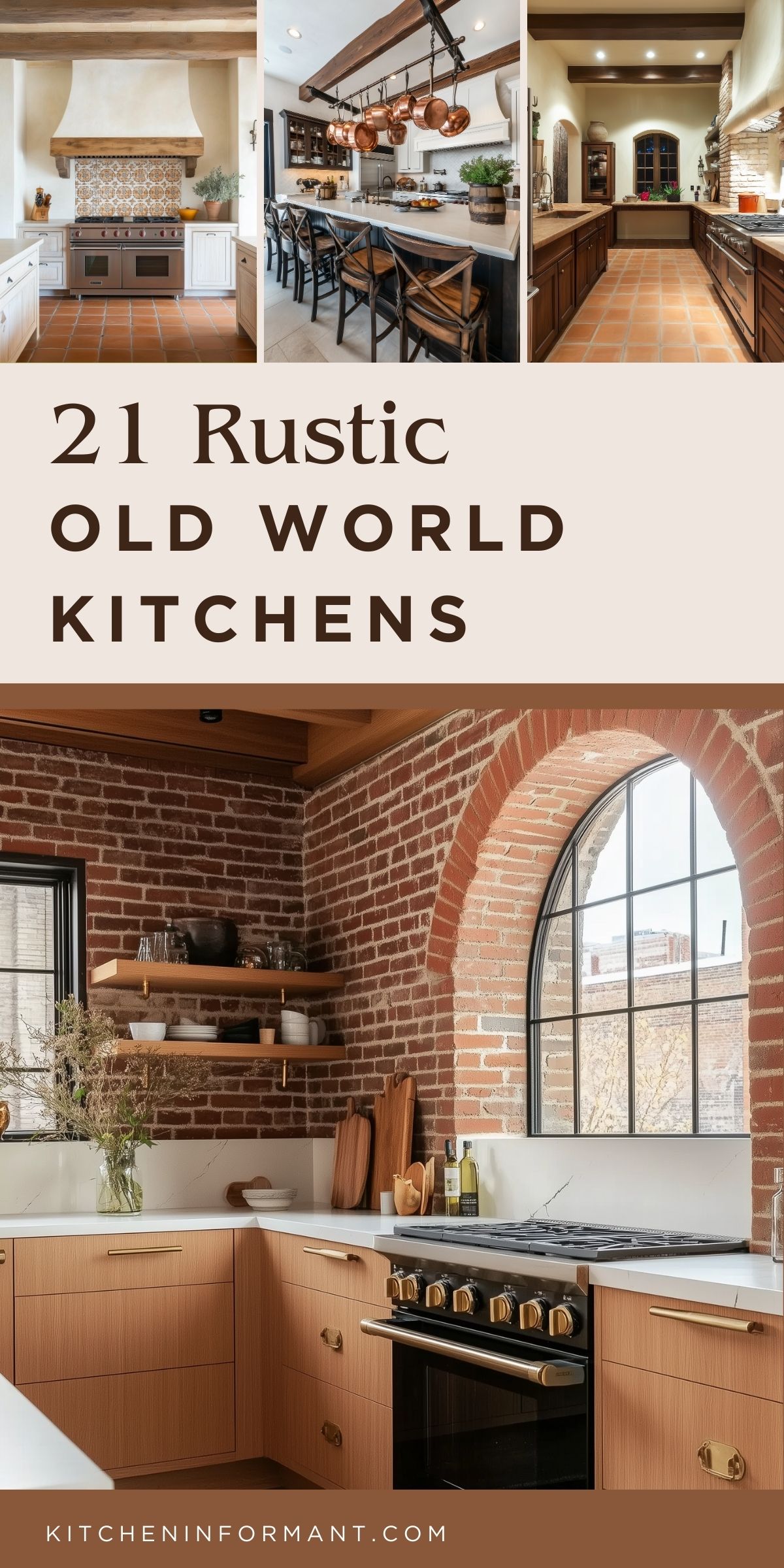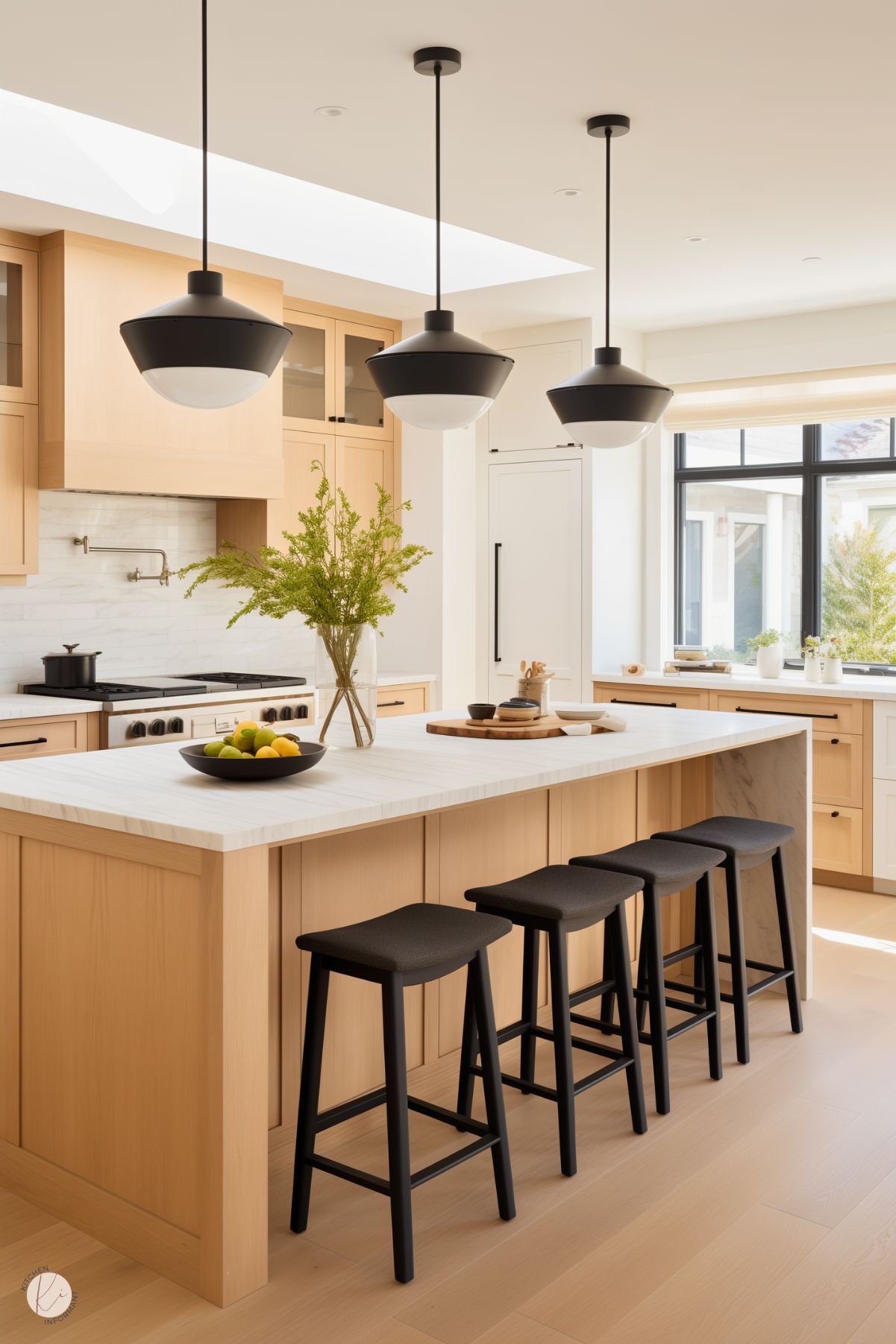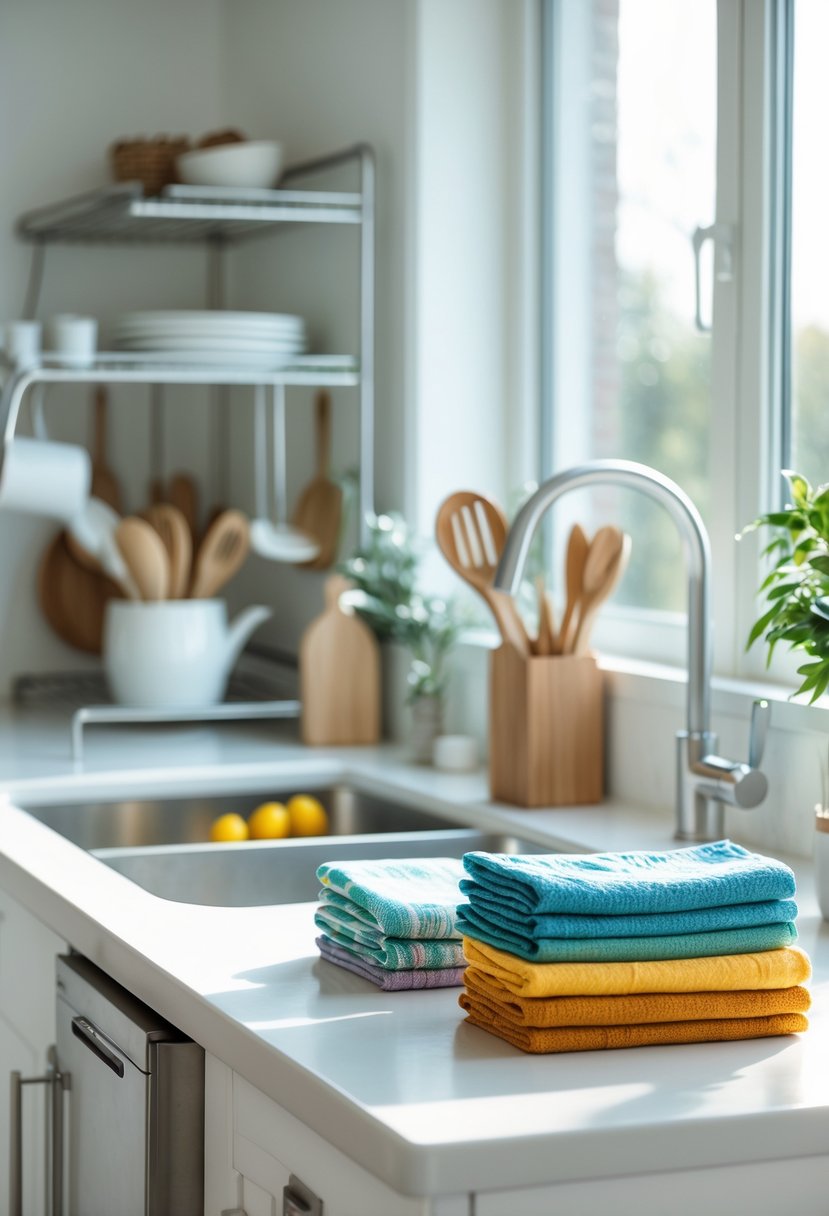Rustic old-world kitchens blend charm and functionality, making them a popular choice for many homeowners.
These kitchens use warm tones, natural materials, and timeless designs to create an inviting and cozy space that feels both historic and modern.
With elements like exposed beams, stone accents, and handmade cabinetry, they evoke a sense of tradition while still being practical for everyday cooking.
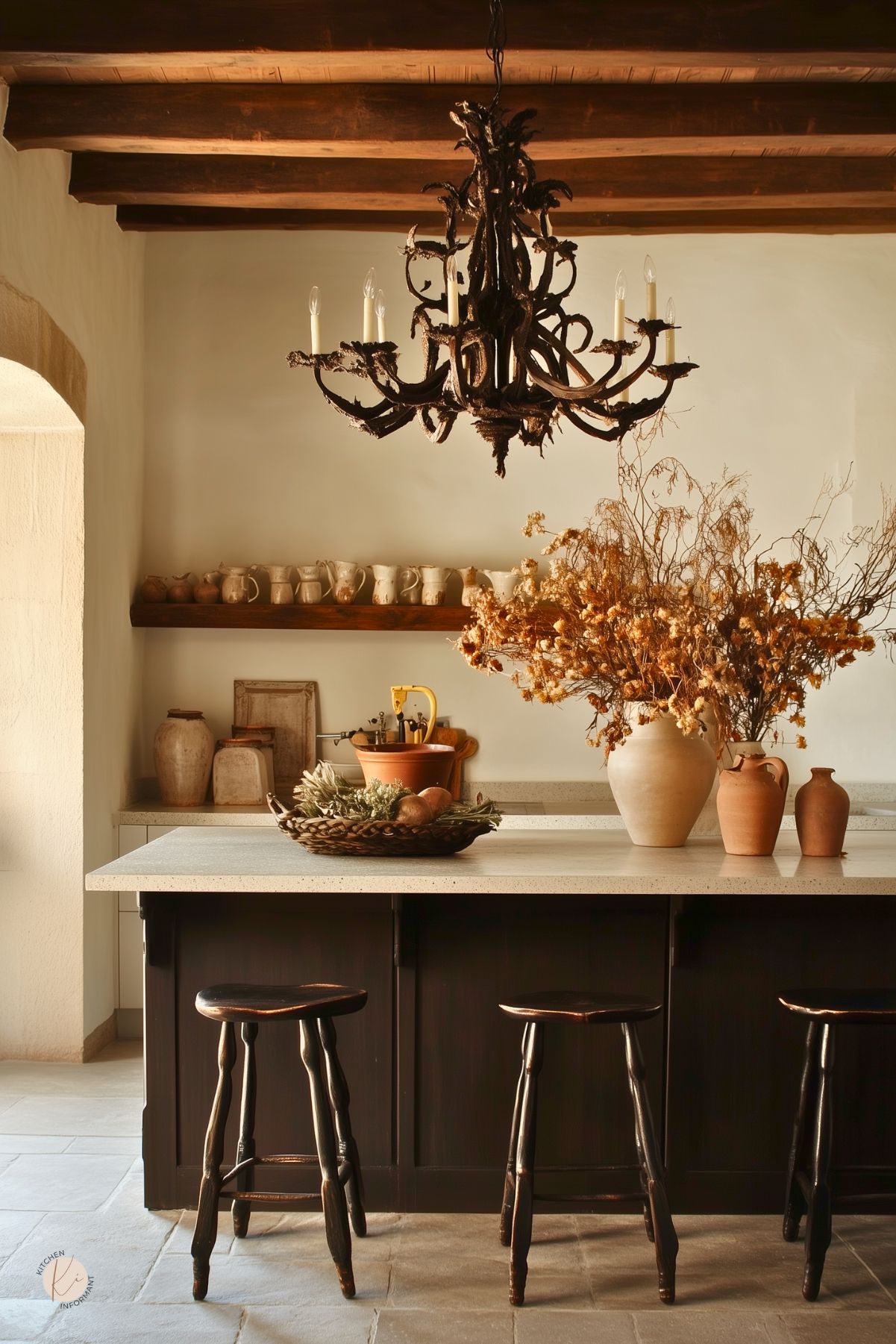
People are drawn to rustic old-world kitchens for their unique character and style. The combination of rustic wood, vintage appliances, and classic decor can turn any kitchen into a delightful gathering place.
It’s easier than ever to find inspiration in this design trend, with numerous ideas available for those looking to transform their space into a warm, welcoming environment.
By embracing this design style, anyone can create a kitchen that not only serves as a functional area for cooking but also as a beautiful and relaxing retreat.
Whether one desires a complete renovation or simply wants to add a few rustic touches, exploring the world of old-world kitchens can be a rewarding journey.
The Charm of Rustic Old World Kitchens
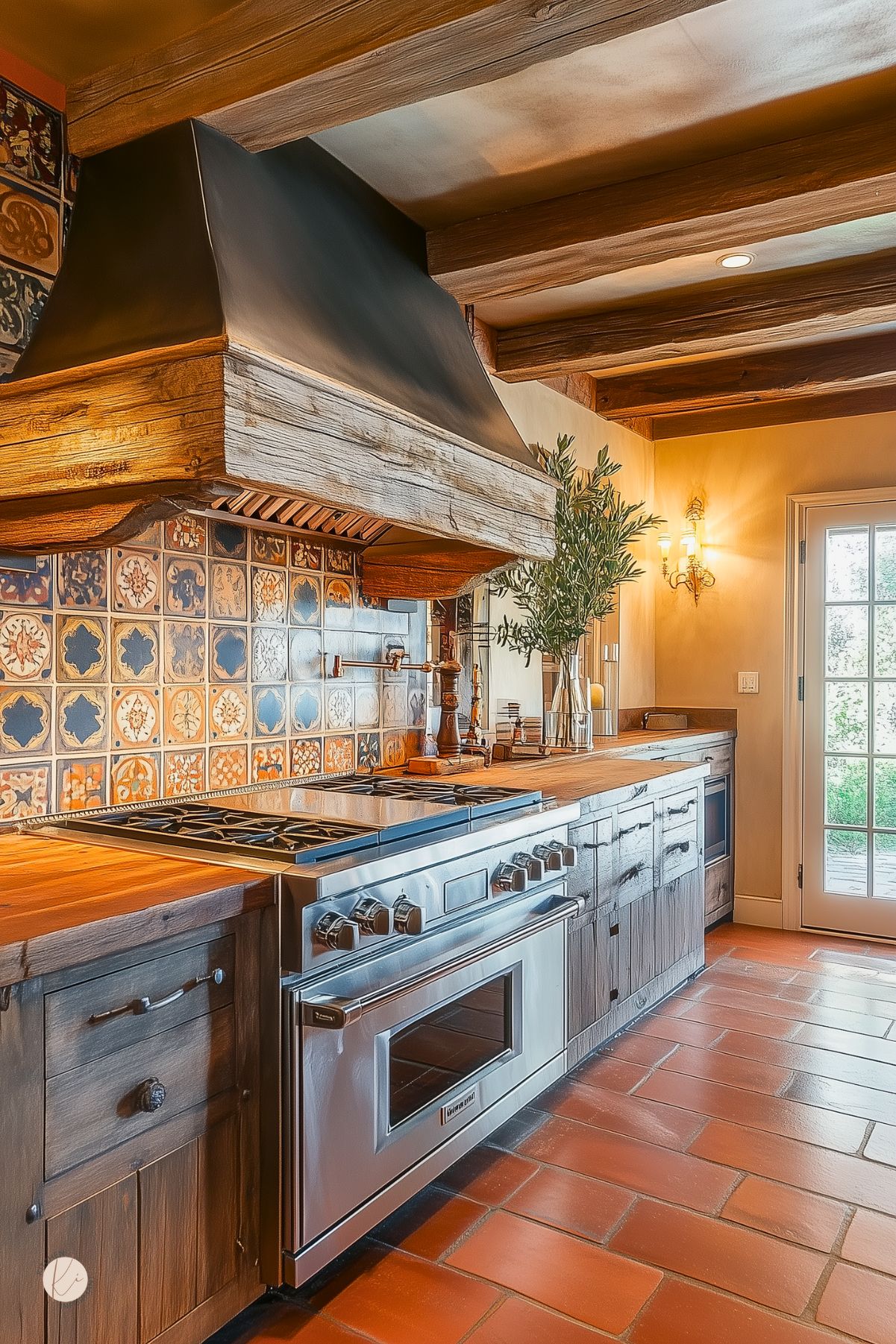
Rustic Old World kitchens offer a unique blend of warmth and history. These kitchens often feature natural materials like wood and stone, creating a cozy atmosphere.
Key Elements:
- Warm Woods: Dark, rich woods give a timeless feel. They add depth and texture.
- Stone Accents: Exposed stone walls or countertops bring a sense of tradition. This can make the space feel more grounded.
- Vintage Décor: Using antique or vintage pieces enhances the charm. Items like old utensils or rustic furniture fit perfectly.
Color Palette:
Muted colors are common in Rustic Old World kitchens. Soft earth tones and warm neutrals create an inviting space. This helps to tie the elements together beautifully.
Functional Spaces:
Large wooden islands are often the heart of these kitchens. They serve as gathering spots for family and friends, promoting a sense of togetherness. Open shelving can display lovely dishware, inviting a personal touch to the environment.
Rustic Old World kitchens encourage a slower pace of life. They remind us of simpler times, making cooking and gathering feel special.
These spaces not only serve a practical purpose but also evoke a sense of nostalgia and comfort.
Design Principles of Rustic Old World Style
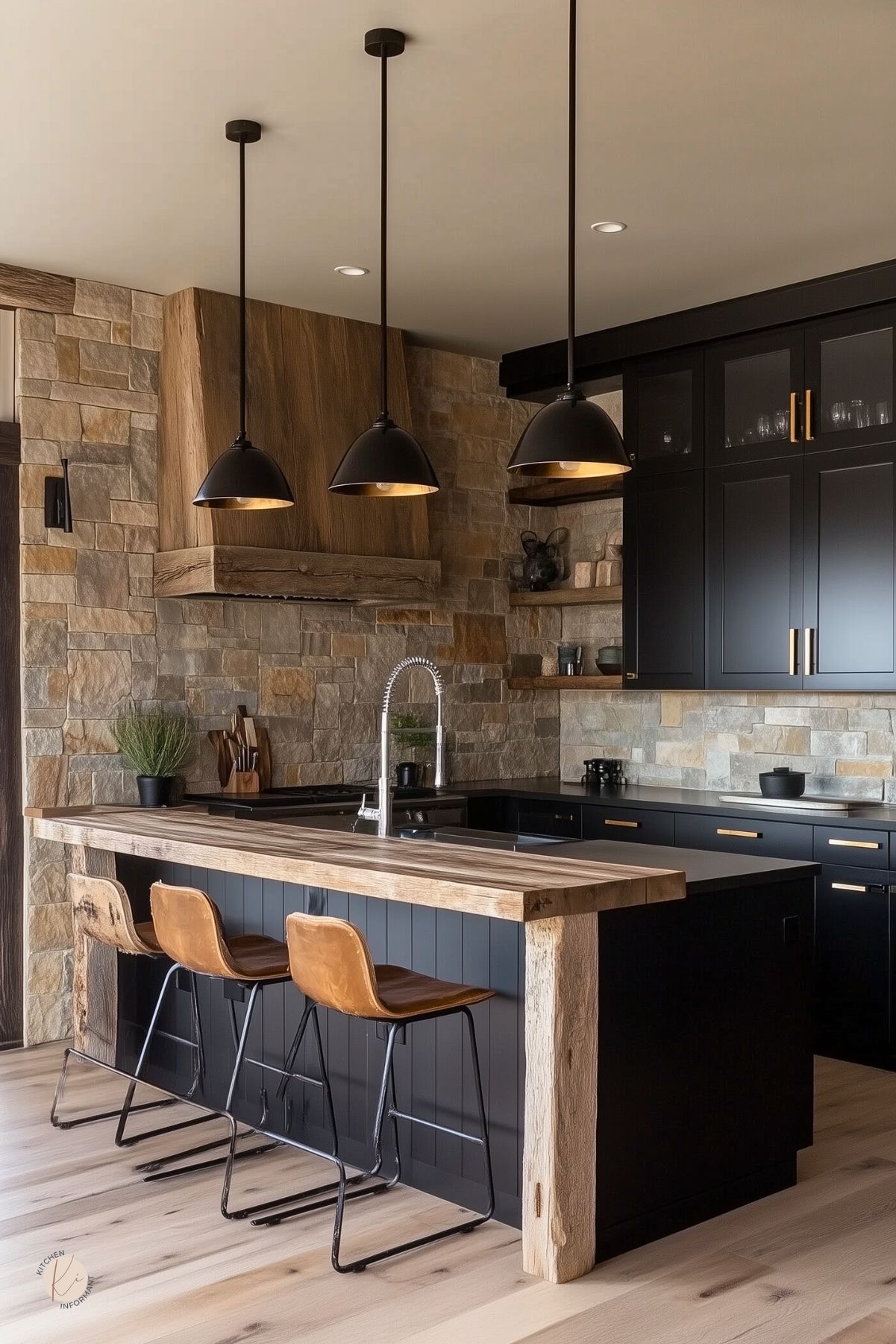
Rustic Old World kitchens charm with their use of natural materials, warm colors, and a focus on comfort. These design principles create inviting spaces that blend functionality with timeless elegance.
Natural Materials and Textures
The heart of a Rustic Old World kitchen is its use of natural materials. Wood, stone, and metal are essential in creating a warm atmosphere.
- Wood: Exposed wooden beams and rustic cabinets bring warmth and character. Heavily grained woods like oak and walnut are popular choices.
- Stone: Natural stone countertops or backsplashes add texture and a sense of tradition. Options like granite, slate, and even weathered limestone work well.
- Metal: Incorporating elements like wrought iron accents or vintage fixtures enhances the rustic feel. These materials contribute to the kitchen’s earthy charm.
When combined, these textures create a harmonious look that emphasizes authenticity and a connection to nature.
Warm Color Palettes and Earth Tones
Color plays a pivotal role in establishing the Rustic Old World vibe. A warm color palette sets a cozy mood, inviting people to gather and relax.
- Earth Tones: Colors such as terracotta, olive green, and deep browns bring the outside in. These hues reflect natural landscapes and create a soothing ambiance.
- Warm Neutrals: Shades like cream, beige, and soft whites balance the richer colors. They help brighten the space while maintaining the earthy feel.
- Accent Colors: Adding splashes of muted colors, like dusty blue or rusty red, offers visual interest without overwhelming the calm atmosphere.
This thoughtful use of color enhances the kitchen’s inviting nature and ties together the various materials.
Emphasis on Comfort and Functionality
A key element in Rustic Old World kitchens is the focus on comfort and practicality. These spaces are designed for cooking, gathering, and enjoying.
- Functional Layouts: Important features include large islands for meal prep and dining. Ample counter space ensures that cooking tasks are easy and enjoyable.
- Cozy Seating: Incorporating comfortable seating, like upholstered benches or rustic stools, encourages family interaction. A welcoming nook by a window can become a favorite spot.
- Timeless Accessories: Emphasizing cooking tools and rustic décor, like pottery and antique utensils, adds character. These elements not only serve a purpose but also celebrate the kitchen’s history.
This balance of comfort and utility makes the Rustic Old World kitchen a perfect place for food and family gatherings.
Historical Influences on Old World Kitchens
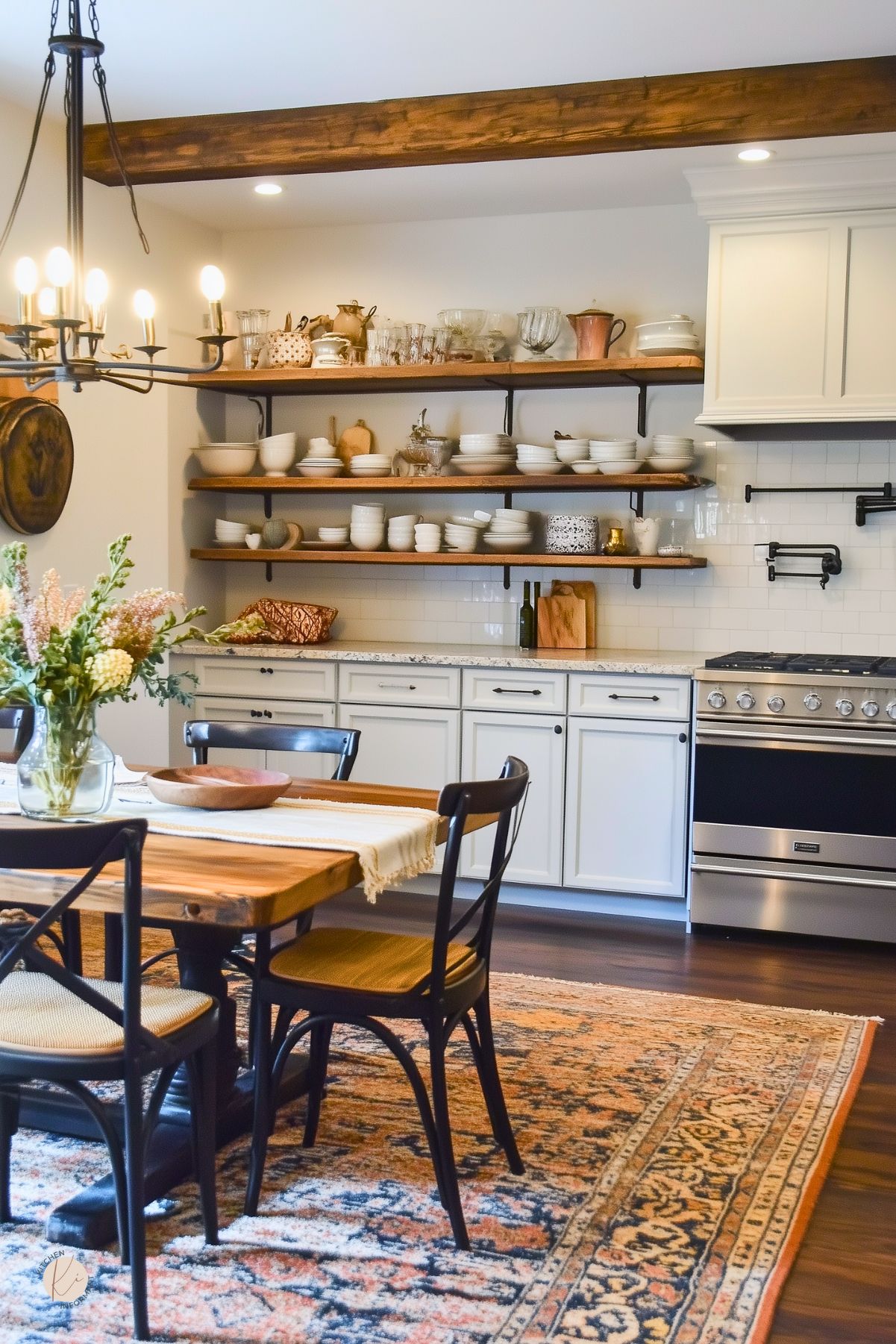
Old World kitchens take inspiration from various historical periods and cultures. These kitchens reflect a charm that is both rustic and practical.
Medieval Influence
During the medieval era, kitchens were often the heart of the home. Large fireplaces were used for cooking and heating. Heavy wooden beams supported the structure, creating a cozy atmosphere.
Renaissance Features
The Renaissance period brought more sophisticated design elements. Kitchens became more organized with built-in furniture. Storage solutions like cabinets and large tables improved functionality.
Regional Styles
Different regions contributed to unique kitchen styles. For example, Italian kitchens emphasized warm colors and natural materials. In contrast, French country designs often included elegant details and vintage accessories.
Materials Used
Common materials in Old World kitchens include:
- Stone: Adds sturdiness and rustic appeal.
- Wood: Provides warmth and a traditional feel.
- Iron: Often used for fixtures and accents.
These materials blend beauty with practicality, making spaces inviting. Each element tells a story of the past, honoring traditions while embracing modern living.
Key Elements of Rustic Kitchen Decor
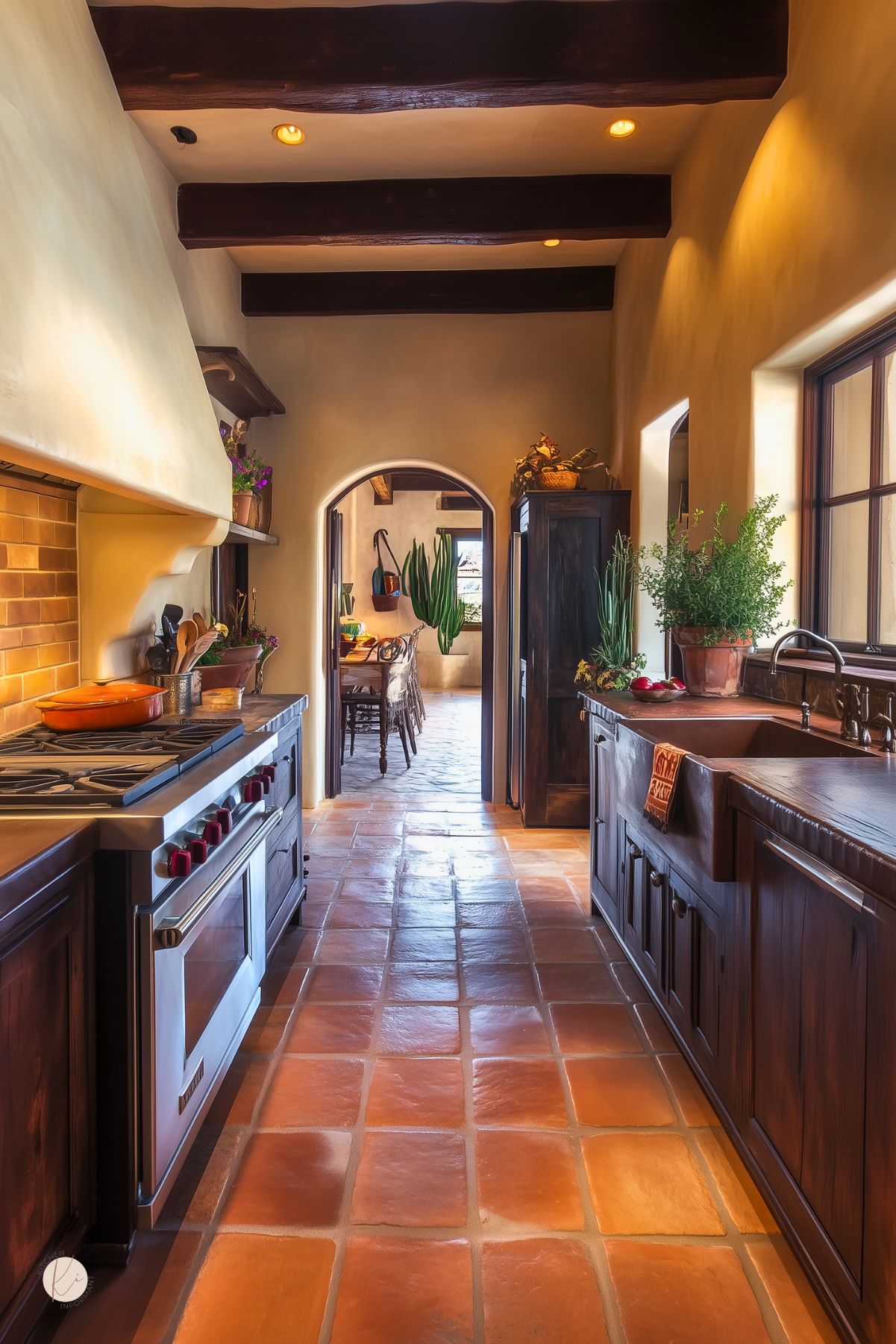
Rustic kitchen decor brings warmth and charm, often inviting elements from nature into the home.
Key components include exposed beams, distressed materials, classic fixtures, and vintage accessories that embody this cozy style.
Exposed Wooden Beams
Exposed wooden beams are a hallmark of rustic kitchen design. They add a strong architectural character to the space.
Typically made from reclaimed or rough-hewn wood, these beams provide a balance between natural beauty and functional structure.
The warmth of the wood enhances the overall atmosphere, making it feel inviting. Often painted finishes are avoided to retain the wood’s original texture and color.
This feature can dramatically change the look of any kitchen.
Heights can vary, but beams should complement the room’s scale. They work well in both large open spaces and smaller, quaint kitchens.
Distressed Wood and Wrought Iron
Distressed wood adds a vintage feel to rustic kitchens. Tables, cabinets, and shelves made from weathered wood bring character and history into the room.
This type of wood may show signs of wear, such as scratches or uneven surfaces, that enrich its charm.
Alongside distressed wood, wrought iron is often used for accents.
These iron elements can appear in light fixtures, cabinet handles, or railings. Wrought iron adds durability and a touch of elegance.
Combining these two materials creates a warm, lived-in look. They lend an organic feel to the kitchen while offering functionality.
The blend makes for a space that feels cozy and welcoming.
Classic Farmhouse Sinks
A classic farmhouse sink is a striking focal point in a rustic kitchen. These sinks are deep and wide, perfect for washing larger pots and pans.
Made from materials like porcelain or fireclay, they are both durable and aesthetically pleasing.
Farmhouse sinks can come in various styles, including apron-front designs, which enhance the traditional look. This feature makes the sink stand out rather than blend in, creating a charming centerpiece in the workspace.
In addition, these sinks offer practicality, promoting a hands-on cooking experience.
Setting one in a rustic kitchen is a nod to country life and simpler times, adding to the overall aesthetic.
Antique Accessories and Lighting
Antique accessories and light fixtures speak to the heart of rustic decor. Items like vintage canisters, old-fashioned scales, and ceramic utensils add personal touches.
Each piece typically tells a story, bringing warmth and history into the kitchen.
Lighting is equally important.
Fixtures made from wrought iron or antique glass can enhance the rustic feel. Pendant lights or chandeliers that feature a blend of metals and glass maintain a cohesive look.
Positioning these items thoughtfully throughout the kitchen creates a harmonious blend of old and new.
They invoke a sense of nostalgia while offering functional beauty. It’s all about creating a space that feels both lived-in and loved.
Furniture Choices for Rustic Themes
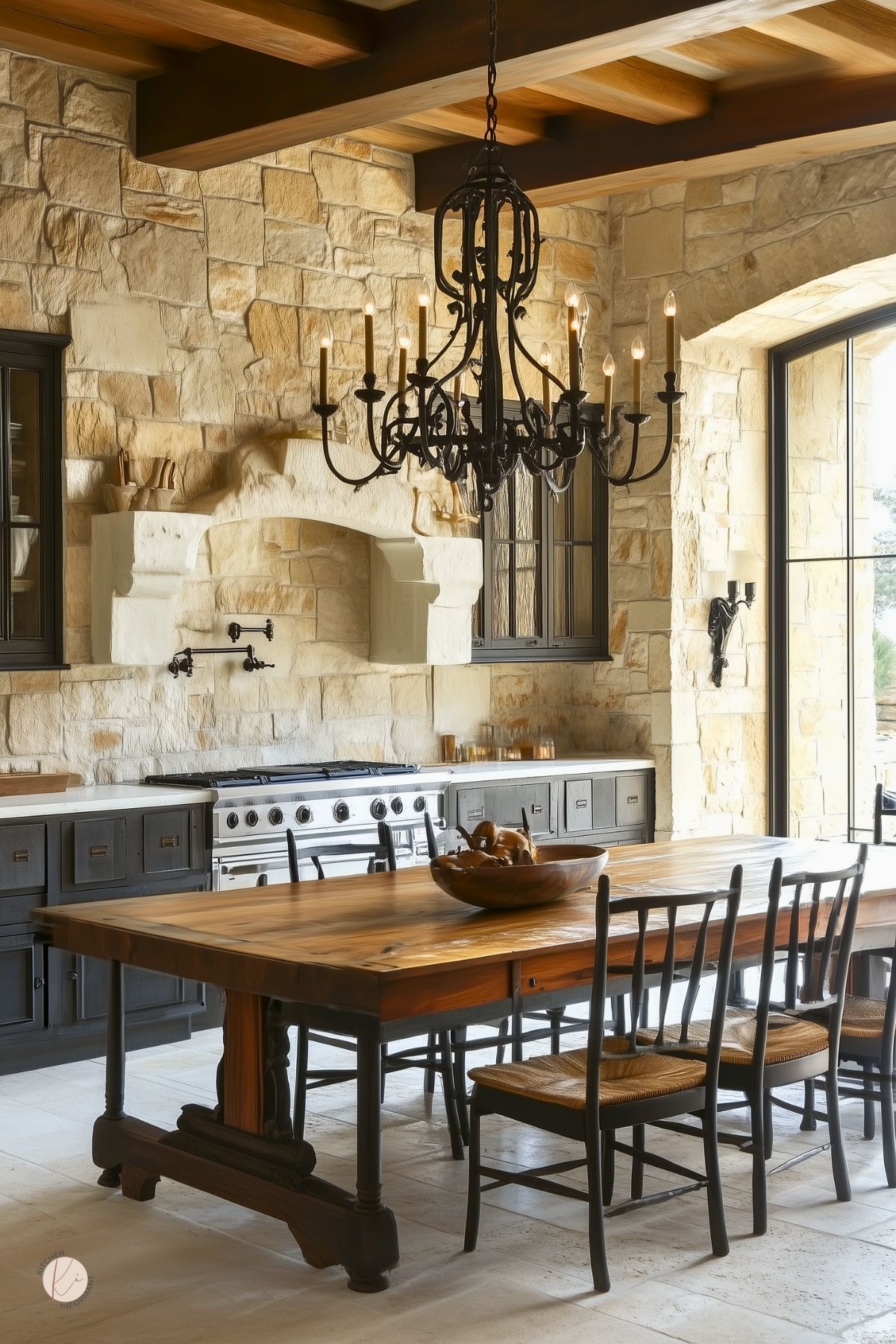
Rustic kitchens benefit from furniture that adds warmth and character. Key choices often include substantial wooden tables, unique chairs, and functional kitchen islands or butcher blocks.
These elements work together to create an inviting and homey atmosphere.
Chunky Wooden Tables
Chunky wooden tables are a staple in rustic kitchens. They often feature thick, solid tops made from reclaimed or distressed wood, giving each piece a unique history.
These tables can easily accommodate family meals and gatherings, making them practical as well. The size and weight of these tables add to their sturdiness.
It’s common for them to have a natural finish that highlights the wood’s grain. A simple centerpiece, like a vase of wildflowers, can enhance the table’s charm without overwhelming it.
Sturdy Chairs with Character
Sturdy chairs play an essential role in a rustic kitchen’s design. These chairs often showcase unique designs, such as ladder backs or worn leather upholstery.
Select chairs that are made from the same wood as the table for a cohesive look. However, mixing different styles can also create an interesting visual appeal.
Comfort is key, especially for those long family dinners. A well-built, sturdy chair invites guests to stay longer and enjoy each other’s company. Adding cushions in earthy colors can enhance comfort while maintaining a rustic feel.
Islands and Butcher Blocks
Islands and butcher blocks are functional additions to rustic kitchens. They provide extra prep space and often serve as a gathering spot for family and friends.
Many rustic kitchen islands feature a mix of wood finishes, incorporating metal or stone elements. This combination adds texture and visual interest.
A butcher block made from hard maple or oak is ideal for food preparation. Additionally, it can double as a dining spot with barstools around it.
Choosing pieces that reflect natural materials ties the kitchen together and emphasizes a welcoming, homey feel.
Creating Cohesion with Flooring and Walls
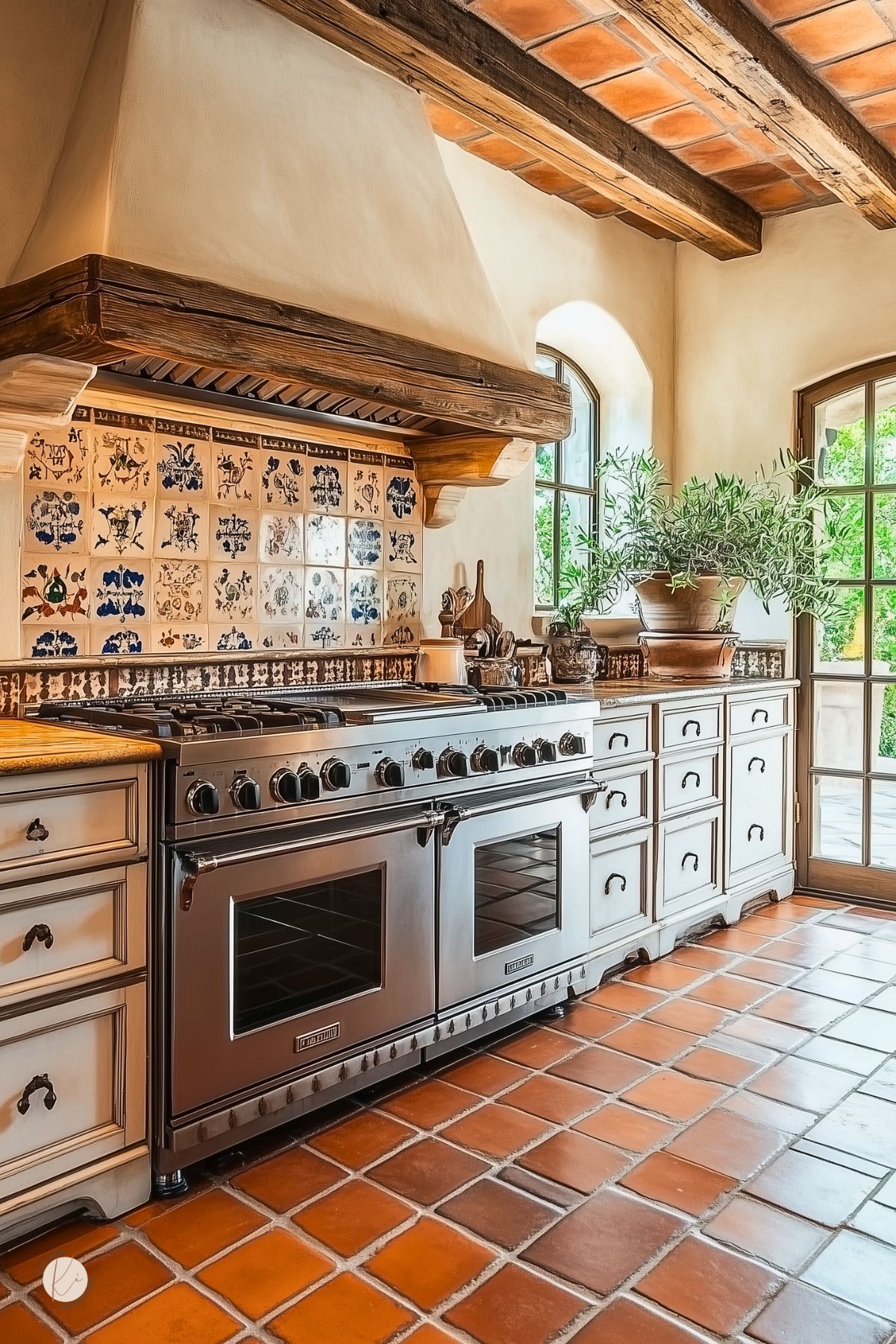
Choosing the right flooring and wall treatments can create a warm and inviting atmosphere in a rustic Old World kitchen.
Two key elements to consider are the use of stone or terracotta tiles for the floor and various plastered or textured wall finishes.
These choices enhance the overall charm and cohesion of the space.
Stone or Terracotta Tiles
Stone and terracotta tiles are popular choices for flooring in rustic kitchens. These materials offer durability and a timeless look that fits well in Old World designs.
- Natural Beauty: Stone tiles come in various shades and textures, providing a rustic feel. They can create a visual connection to the outdoors.
- Warmth and Comfort: Terracotta tiles add a comforting warmth and typically feature rich, earthy colors. This makes them ideal for a cozy kitchen vibe.
- Maintenance: Both options are relatively easy to clean. Regular sealing can help maintain their appearance and longevity.
Adopting these materials lays a strong foundation that complements other rustic elements in the kitchen.
Plastered or Textured Walls
Plastered or textured walls bring depth and character to the kitchen space. They support the rustic theme while creating a cohesive look.
- Textured Finish: Different textures like stucco or rough plaster can mimic the finishes found in historic European homes.
- Color Choices: Soft, muted tones work best, enhancing the warm ambiance. Colors like beige, cream, or soft pastels connect well with rustic furniture and decor.
- Adding Interest: Textured walls can also be a backdrop for artwork or rustic shelving, giving personality to the kitchen.
Using these wall treatments invites warmth, making the kitchen feel inviting and lived-in.
The Role of Cabinetry in Old World Kitchens
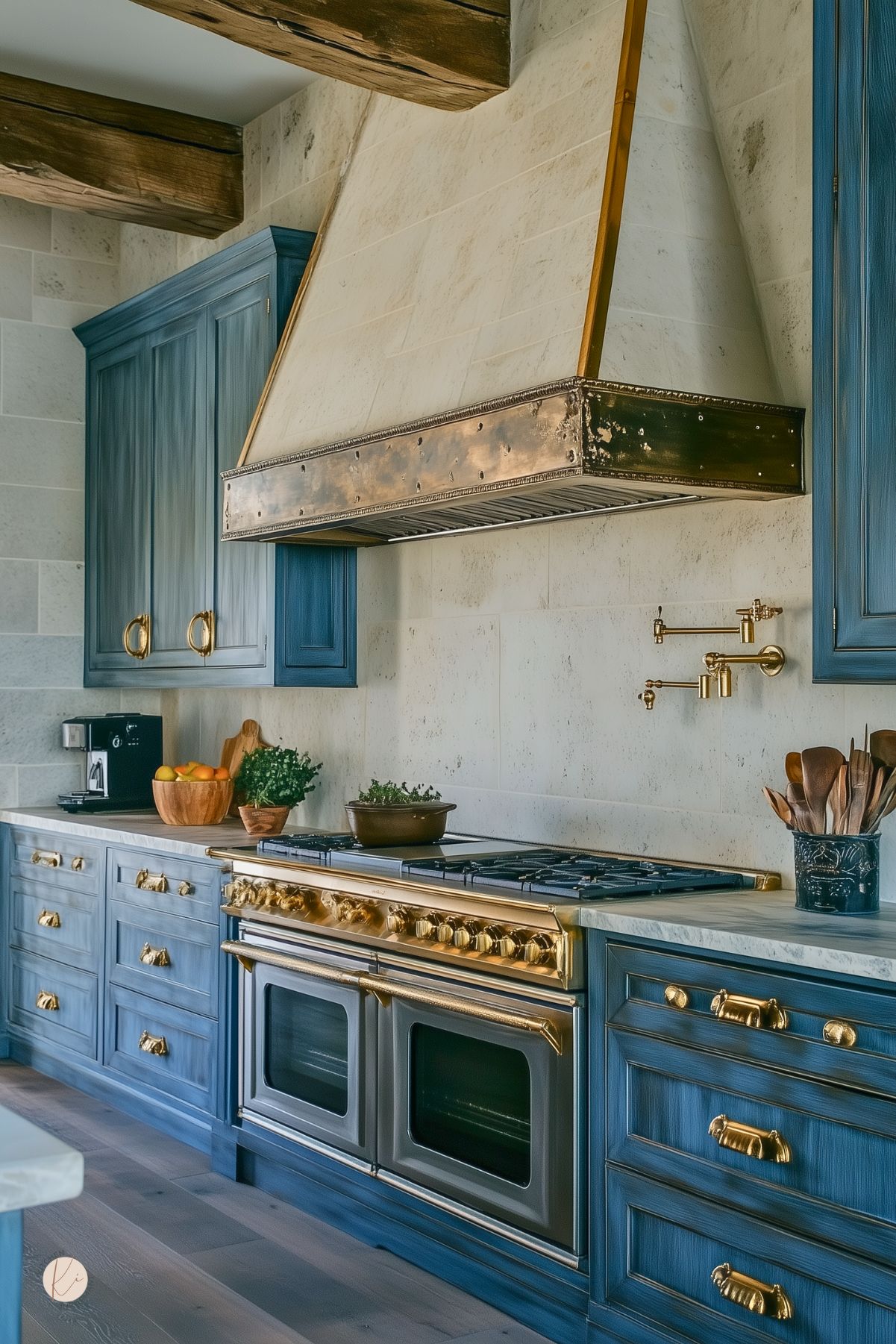
Cabinetry plays a crucial role in defining the character of Old World kitchens. It combines functionality with intricate design to create an inviting atmosphere.
Features such as cabinet styles, finishes, and decorative elements are key aspects that contribute to the overall rustic charm.
Cabinet Styles and Finishes
Old World kitchens showcase a variety of cabinet styles that highlight craftsmanship and artistry. Common styles include raised panel doors, which provide depth and visual interest. Natural wood finishes, such as walnut or cherry, add warmth to the space.
Many cabinets in these kitchens have a distressed look, enhancing the rustic feel. Dark stains can be paired with lighter countertops to create a beautiful contrast. It’s also popular to see hand-painted finishes that incorporate rich colors, making cabinets a focal point.
Some designs even incorporate open shelving to display fine china or decorative items. This adds practicality while also emphasizing elegance. Choosing the right style and finish can transform a kitchen into a cozy retreat.
Decorative Molding and Hardware
Decorative molding is a standout feature in Old World kitchens. It adds a refined touch to cabinetry with intricate details.
Crown molding and baseboards can showcase craftsmanship and elevate the kitchen’s overall aesthetic.
The choice of hardware is equally important. Handles and knobs are often crafted from materials like wrought iron or antique brass. These hardware choices complement the rustic theme and offer durability.
Mixing different types of hardware can also add character. For example, pairing a modern knob with a vintage pull creates a unique look.
Thoughtful selection of both molding and hardware helps achieve the charm that defines Old World kitchens.
Integrating Modern Appliances Seamlessly
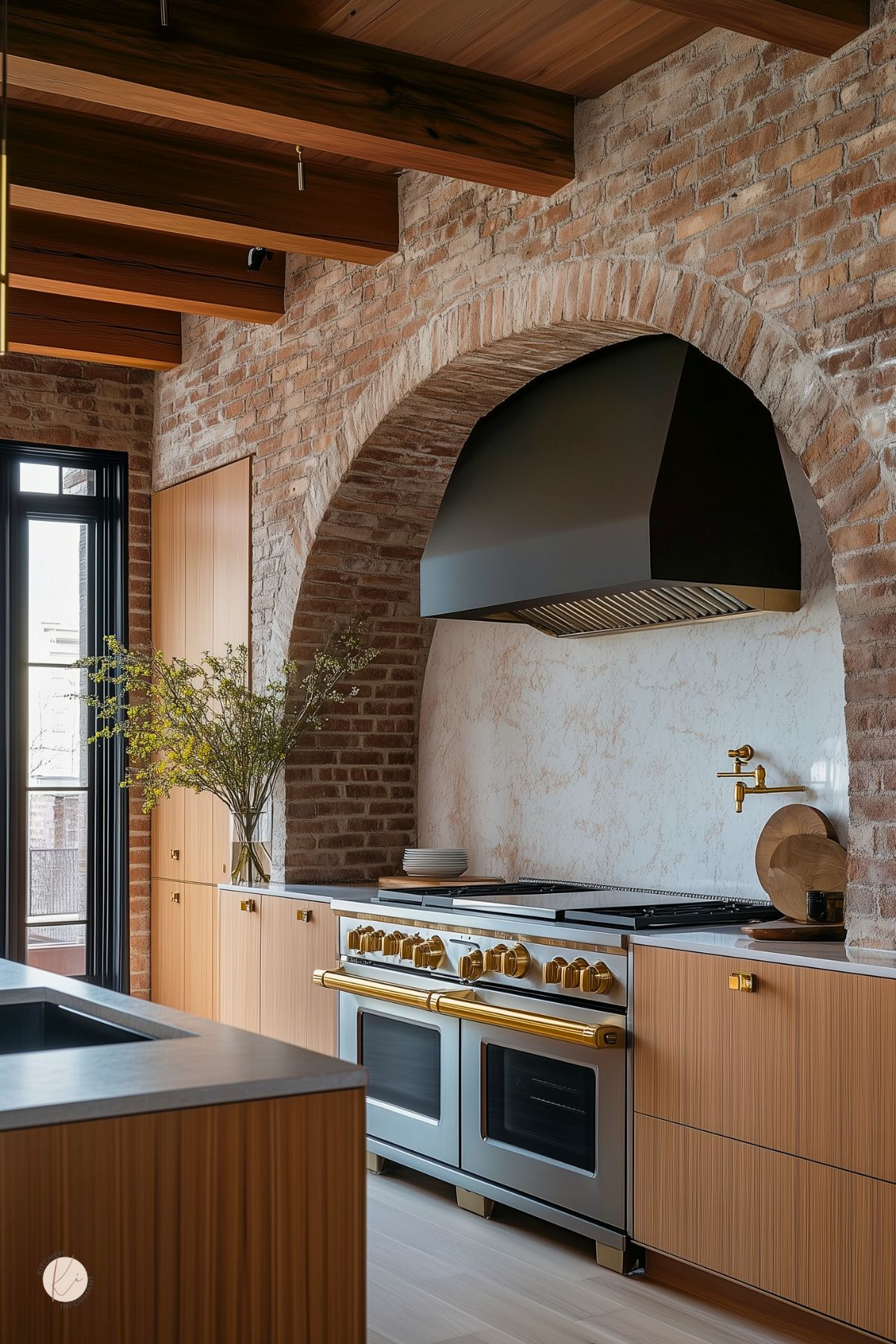
In rustic old world kitchens, blending modern appliances with classic designs can create an inviting space.
This approach enhances functionality while maintaining the desired aesthetic. Here are two essential aspects to consider.
Choosing Appliances That Complement the Style
When selecting appliances for a rustic old world kitchen, it’s crucial to choose options that fit the overall decor. Look for appliances with a vintage finish or that mimic traditional styles. Stainless steel options can work if they have a matte finish or a color that matches rustic hues.
Consider appliances with decorative elements, like knobs or handles that echo old-world charm. Brands offer retro-style refrigerators and ranges that look vintage but provide modern efficiency.
Energy-efficient models can save on utility bills, ensuring these appliances work hard while still looking beautiful. Choosing the right appliances can help preserve that cozy, welcoming vibe.
Clever Ways to Conceal Technology
To maintain the rustic charm, consider creative solutions that hide modern technology. One popular method is using cabinetry that matches the kitchen’s woodwork.
Built-in appliances can seamlessly blend with surrounding cabinetry.
Another idea is to use appliance garages, which are specialized spaces designed to keep small devices, like toasters and mixers, out of sight. This keeps counters tidy and preserves the old-world feel.
Using decorative doors for dishwashers or refrigerators can also hide them within the cabinetry. This approach keeps modern conveniences accessible but discreet.
Prioritizing concealment helps the kitchen feel cohesive and inviting, without losing functionality.
Lighting to Enhance the Rustic Ambiance
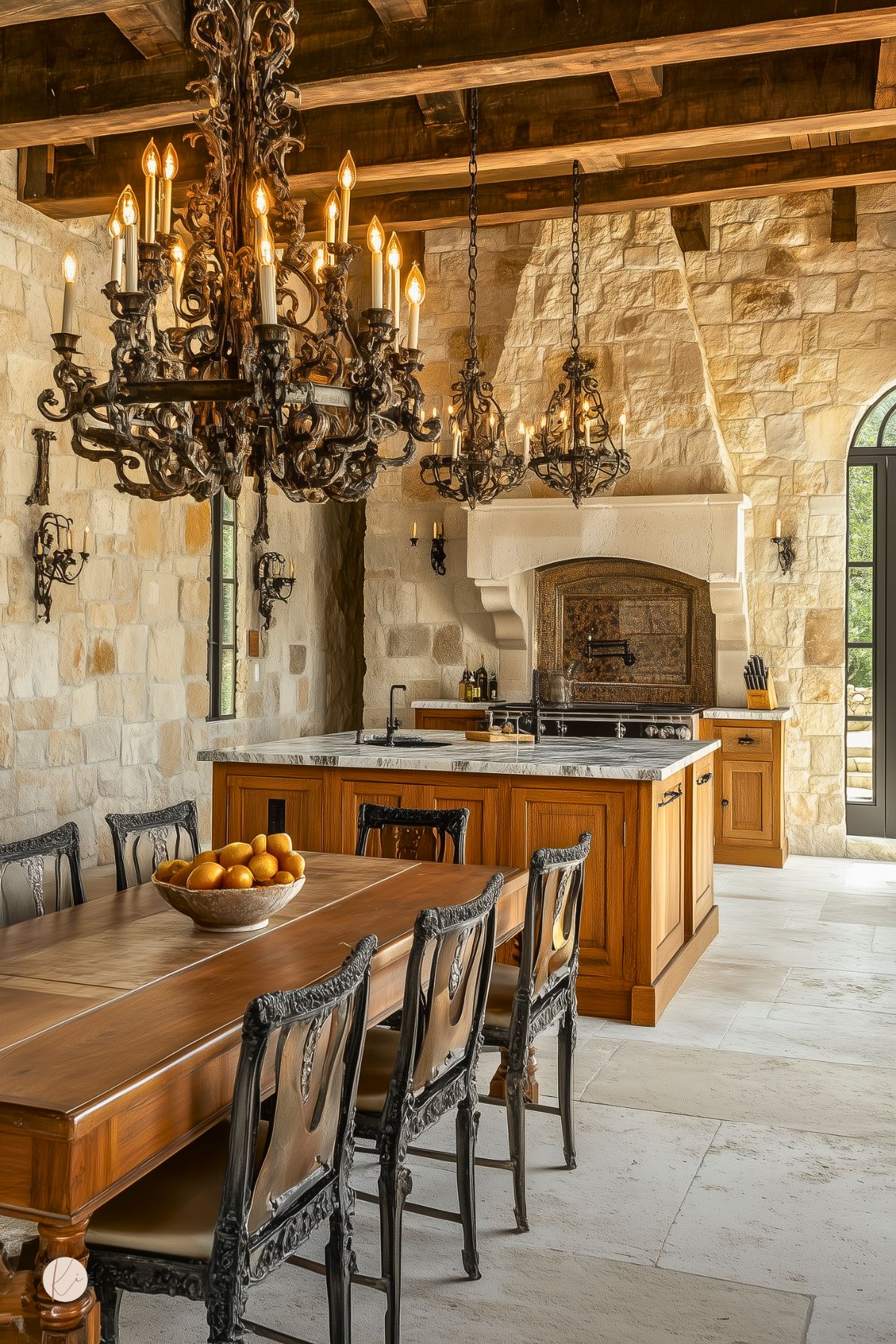
Lighting plays a key role in creating the cozy feel of a rustic old-world kitchen. It brings warmth and charm to the space.
Types of Lighting Fixtures:
- Pendant Lights: These are perfect for hanging above kitchen islands. They add a rustic touch with materials like wood and metal.
- Lanterns: Using lantern-style fixtures creates a vintage atmosphere. They evoke a sense of nostalgia and warmth.
- Chandeliers: A rustic chandelier can make a bold statement. Look for designs that feature wrought iron or wood.
Color Temperature:
Choose bulbs with a warm color temperature. This will give off a soft glow and enhance the inviting feel of the kitchen.
Layering Light:
Combining different types of lighting is effective. It allows for versatility in a space. Consider a mix of ambient, task, and accent lighting.
Dimmers:
Installing dimmer switches can help set the mood. They allow for brightness adjustment based on the time of day or occasion.
Accessorizing Your Kitchen with Old World Accents
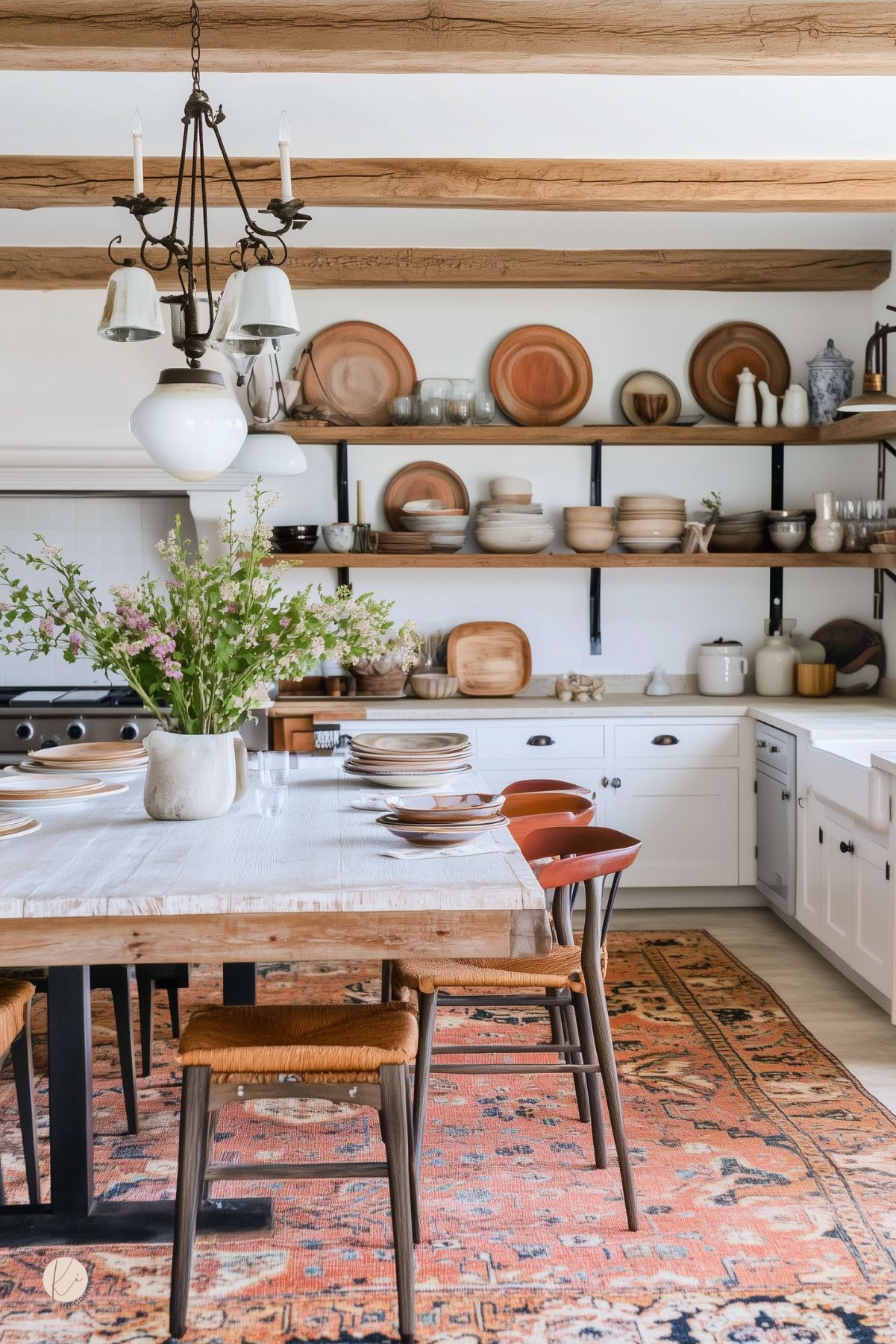
Accessorizing a kitchen with old world accents can create a warm and inviting atmosphere. Simple elements can add character and charm.
1. Antique Items:
Incorporating antique tools or cookware can enhance the rustic feel. Copper pots hanging from a rack add both style and functionality.
2. Vintage Decor:
Choosing vintage dishes or glassware gives a nostalgic touch. Displaying them on open shelves allows for easy access and adds color.
3. Farmhouse Accents:
Using wooden crates or baskets can store items while providing a rustic look. They can be functional and decorative at the same time.
4. Textiles:
Adding checkered or floral patterned tablecloths can soften hard surfaces. They create a cozy vibe and are easy to change with the seasons.
5. Warm Lighting:
Soft, warm lighting can transform the space. Use iron candle holders or vintage lamps to create a welcoming glow.
6. Artwork:
Selecting artwork that features pastoral scenes or old world landscapes can enhance the theme. Framed prints or canvas pieces are good options.
Color Schemes
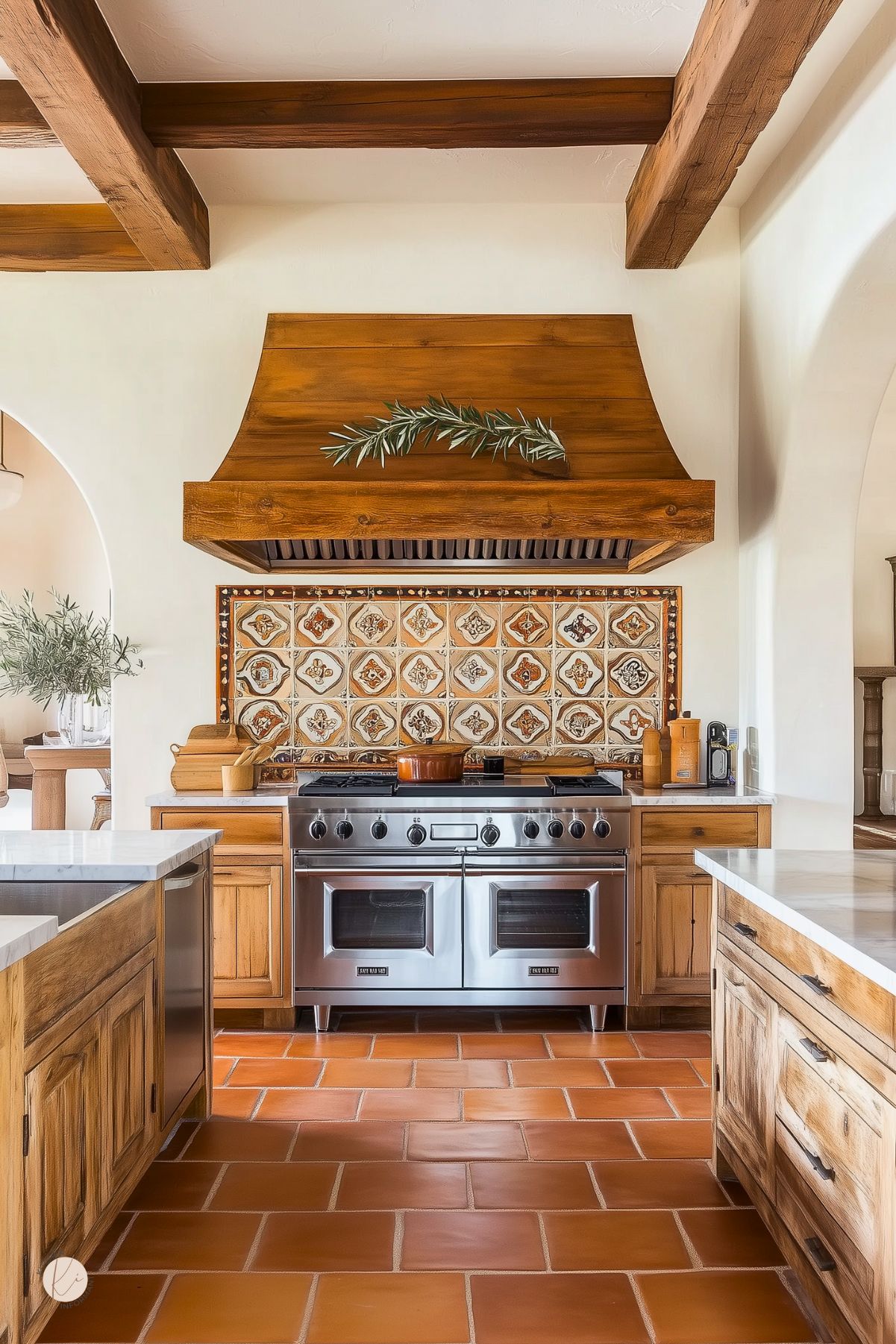
Choosing the right colors is essential for creating a Rustic Old World kitchen. A warm and inviting palette can make the space feel cozy and stylish.
Popular Color Choices:
- Earthy Tones: Shades like beige, cream, and soft browns create a natural vibe.
- Muted Greens: Soft sage or olive can add a touch of nature.
- Warm Whites: Off-white or creamy shades can brighten the room without feeling stark.
To achieve balance, consider the 60-30-10 rule. This means using:
- 60% dominant color (walls)
- 30% secondary color (cabinets)
- 10% accent color (decor or appliances)
Accent Ideas:
- Add a pop of color with a bold backsplash.
- Use decorative dishes in rich colors displayed on open shelves.
- Incorporate wood accents to enhance the warm tones.
Textures also play a significant role.
Mixing matte and glossy finishes can create visual interest. For example, pairing rustic wooden cabinets with a smooth, glossy countertop can be striking.
Combining these elements will help create a cohesive look that embodies Old World charm while remaining functional and inviting.
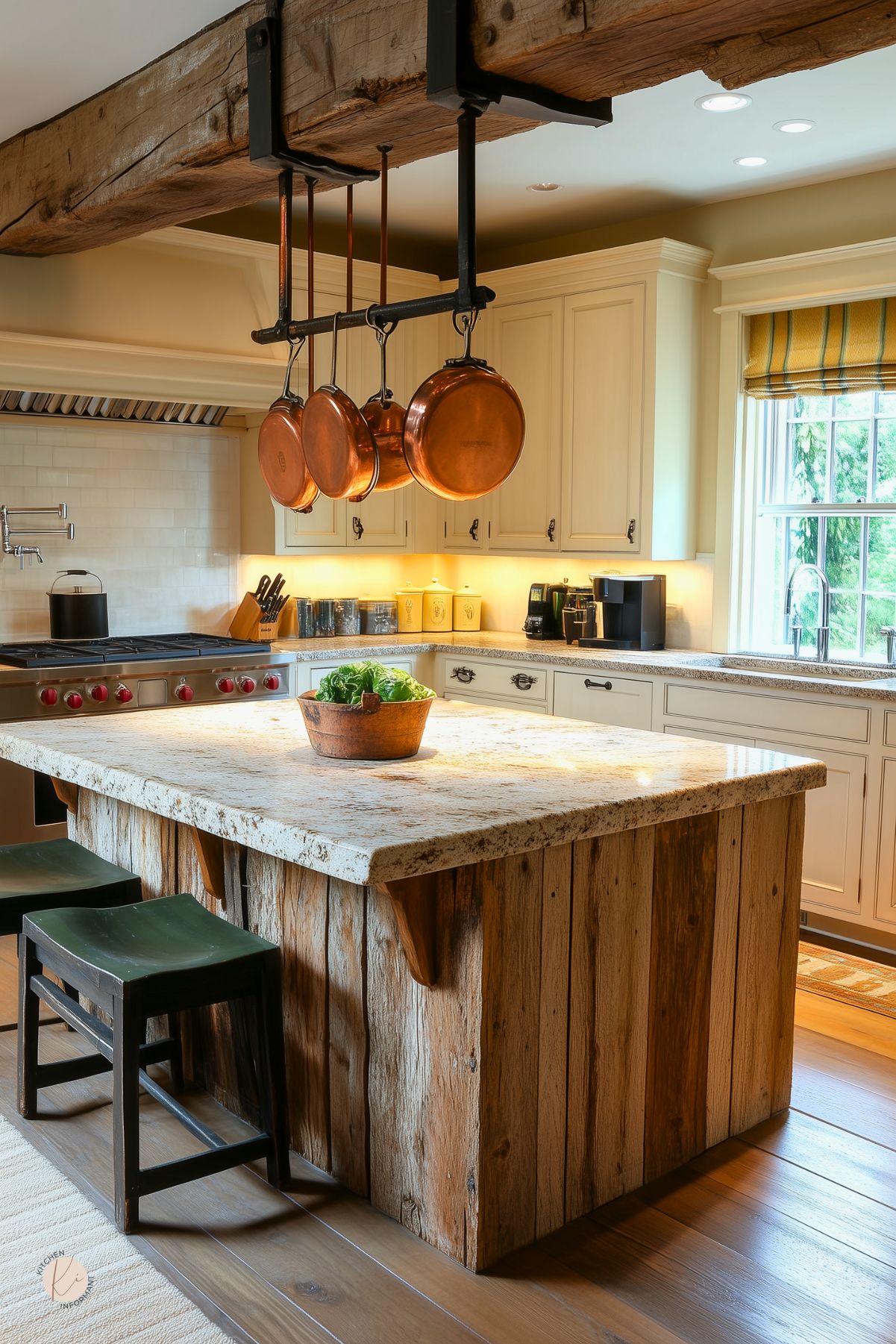
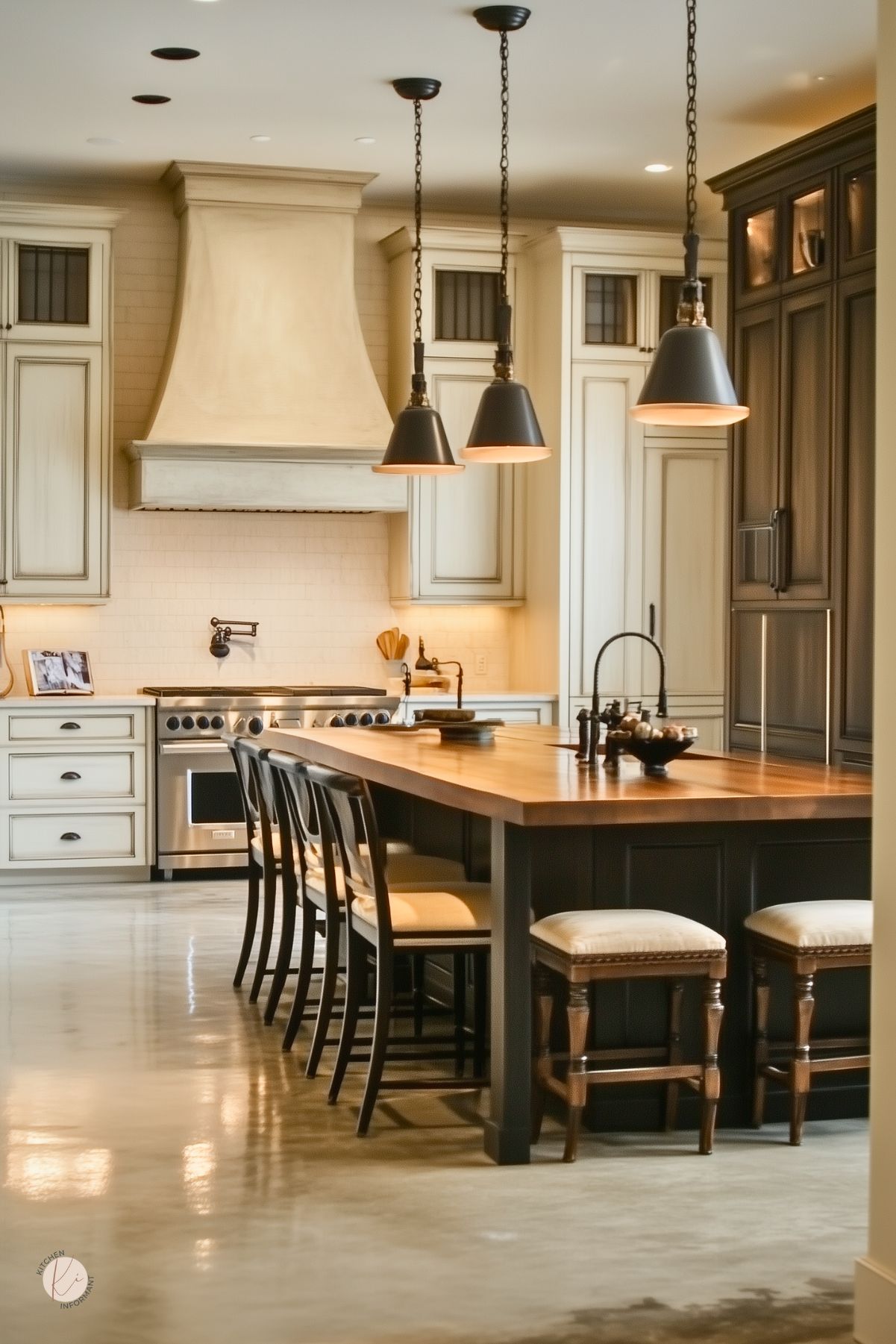
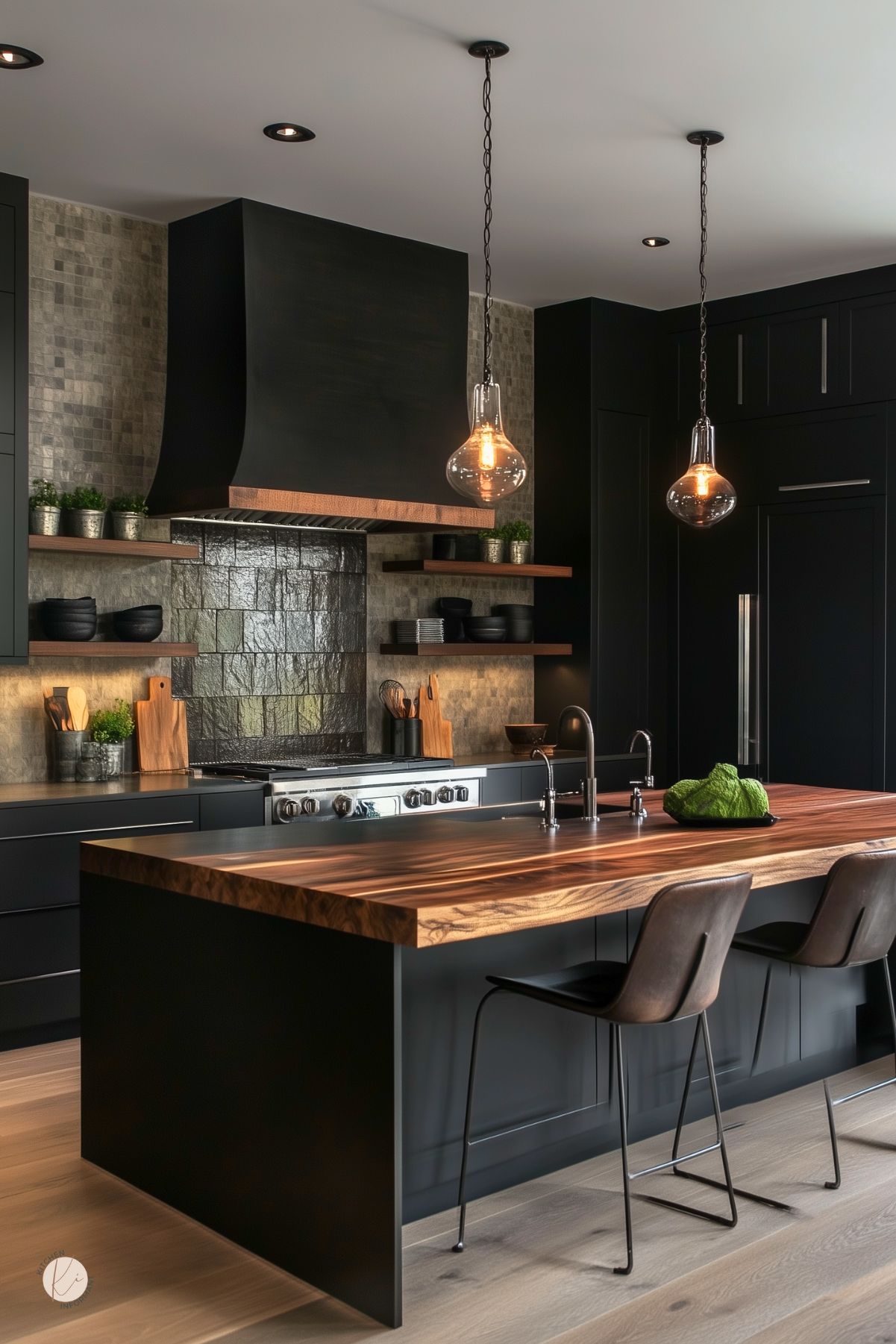
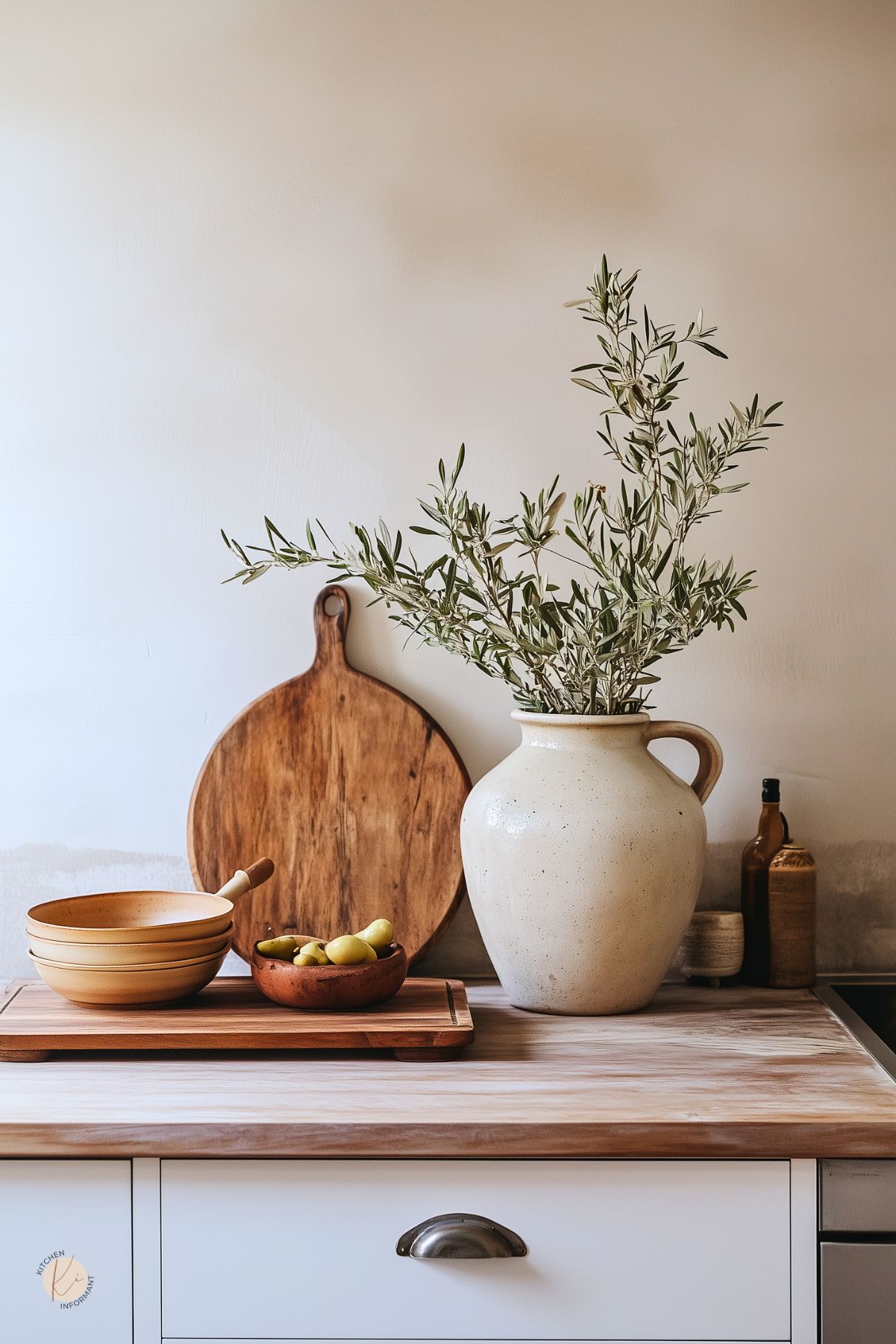
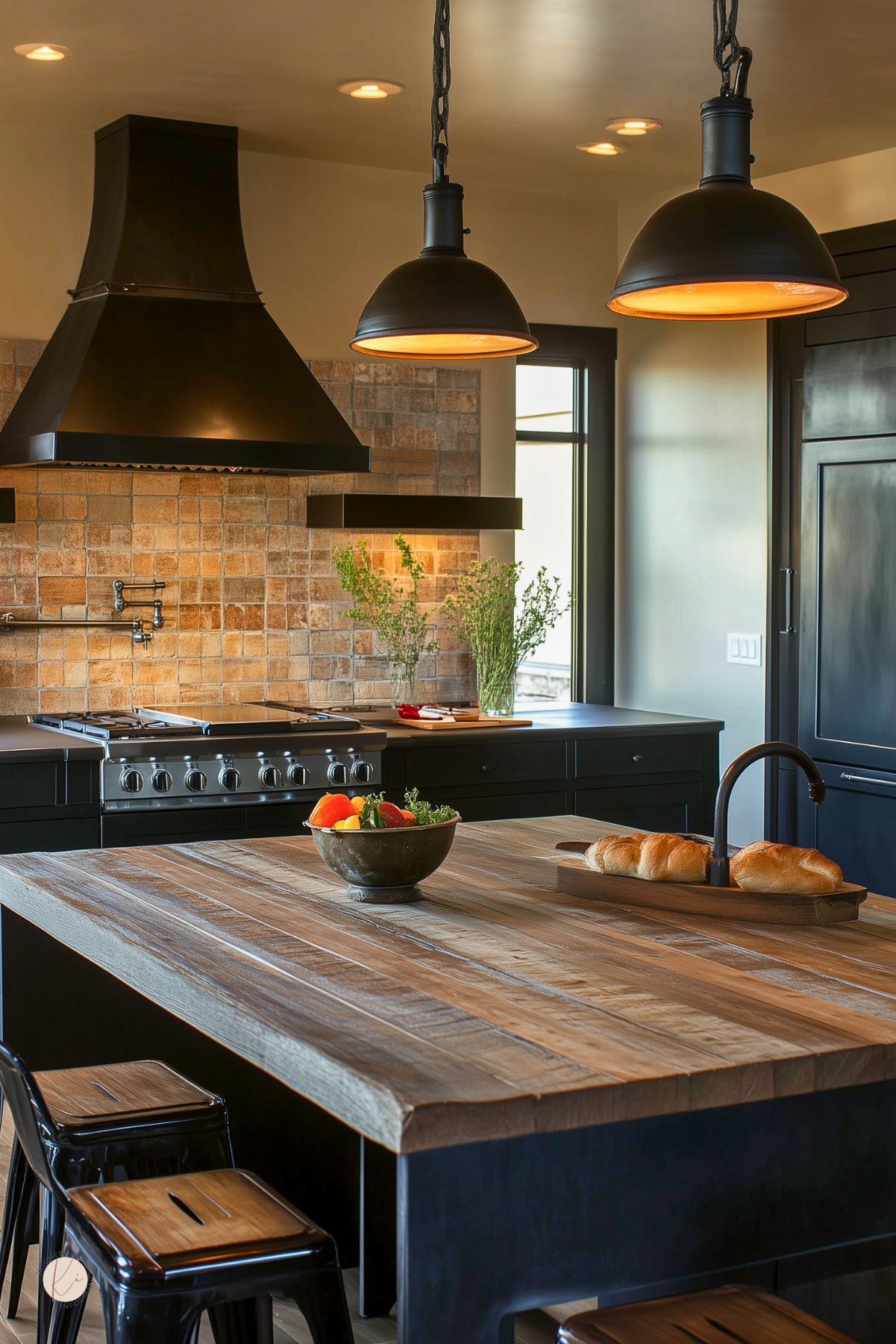
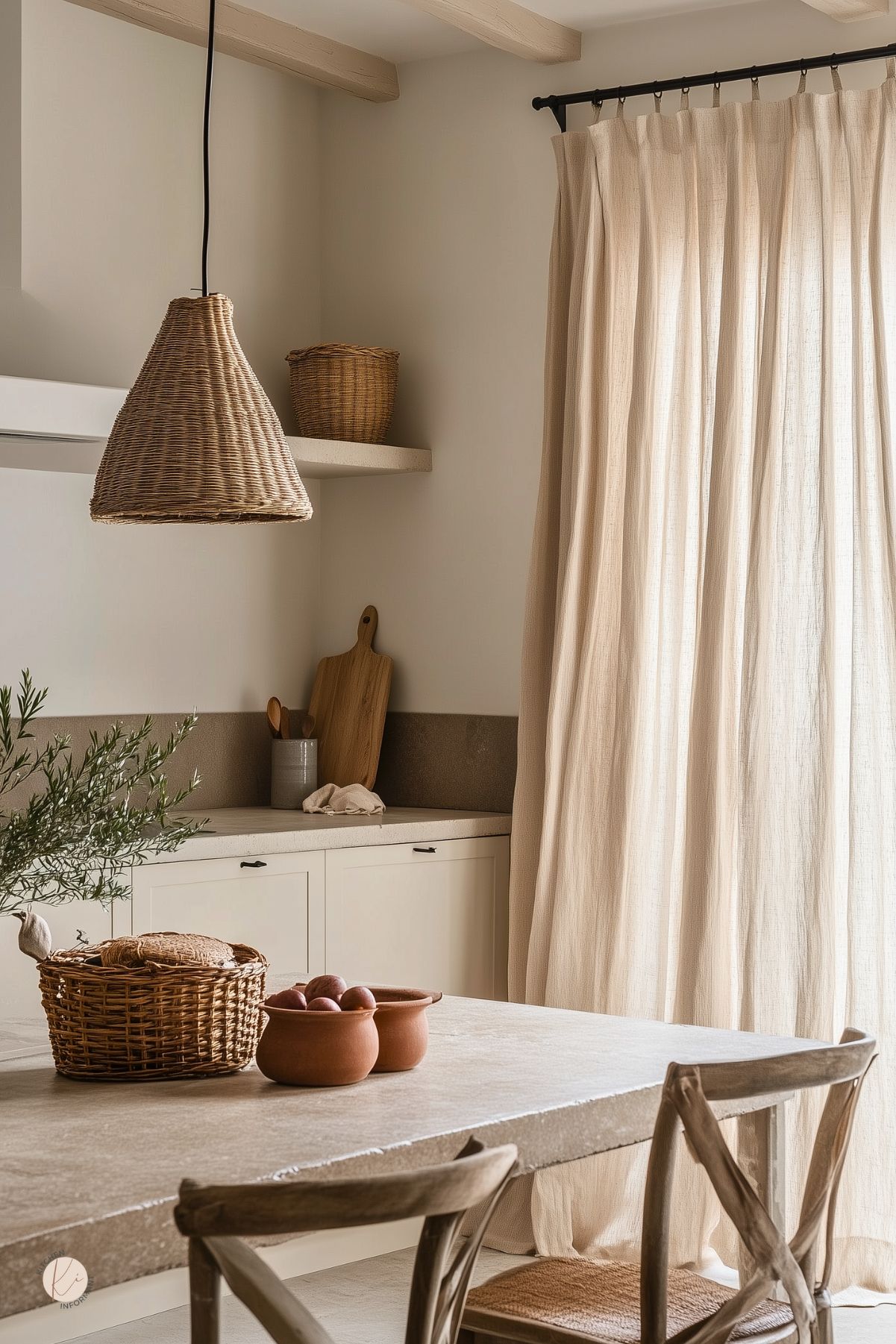
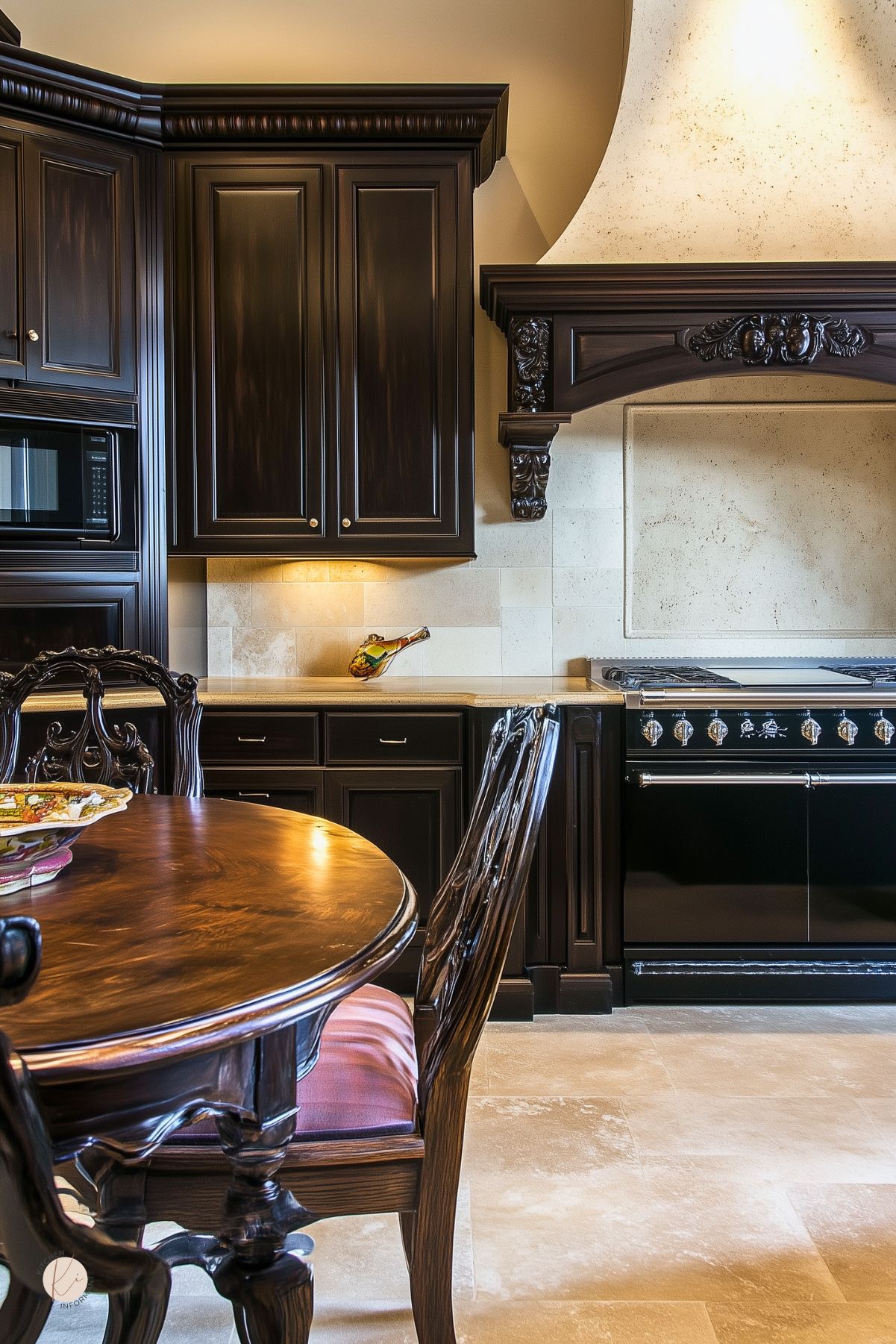
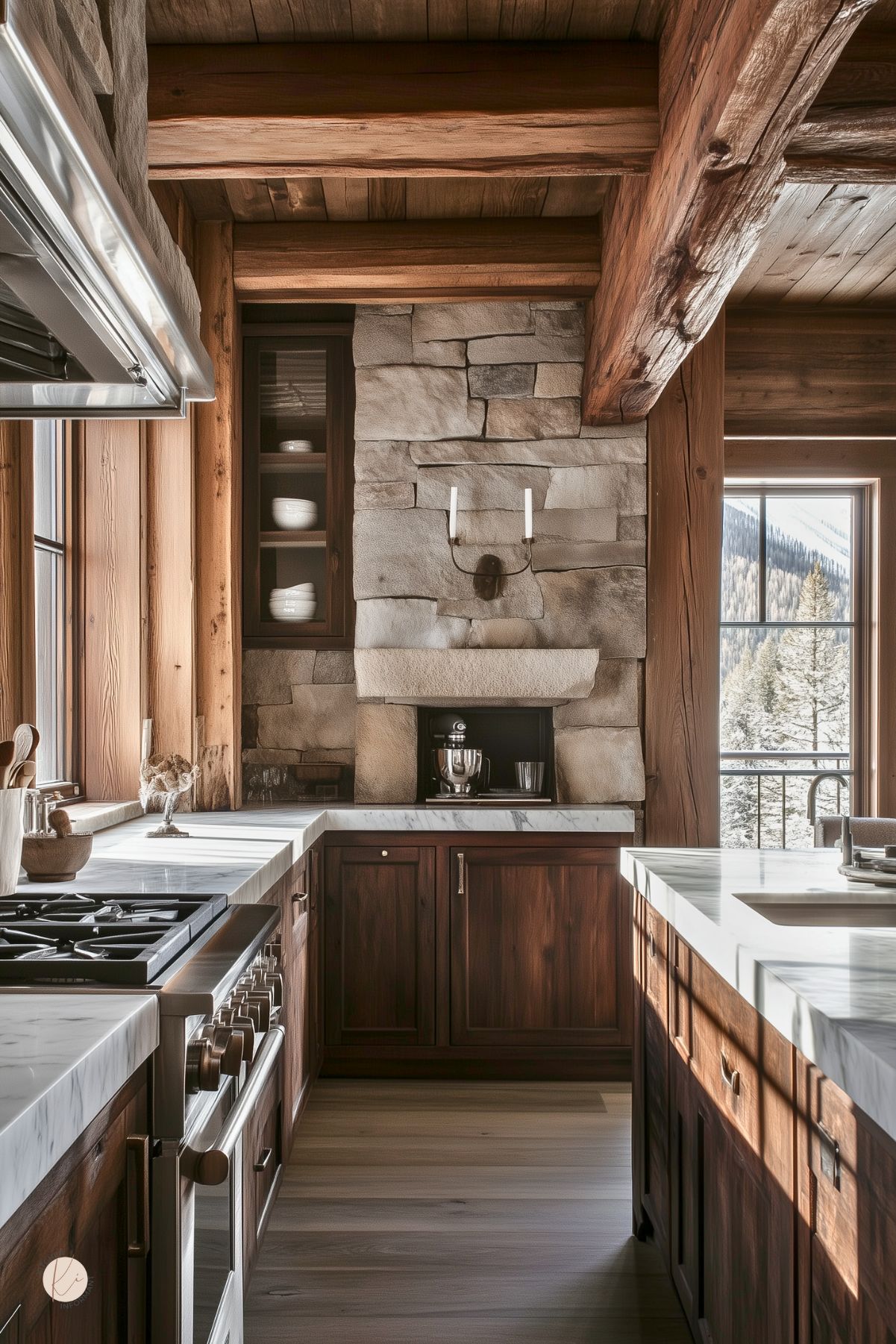
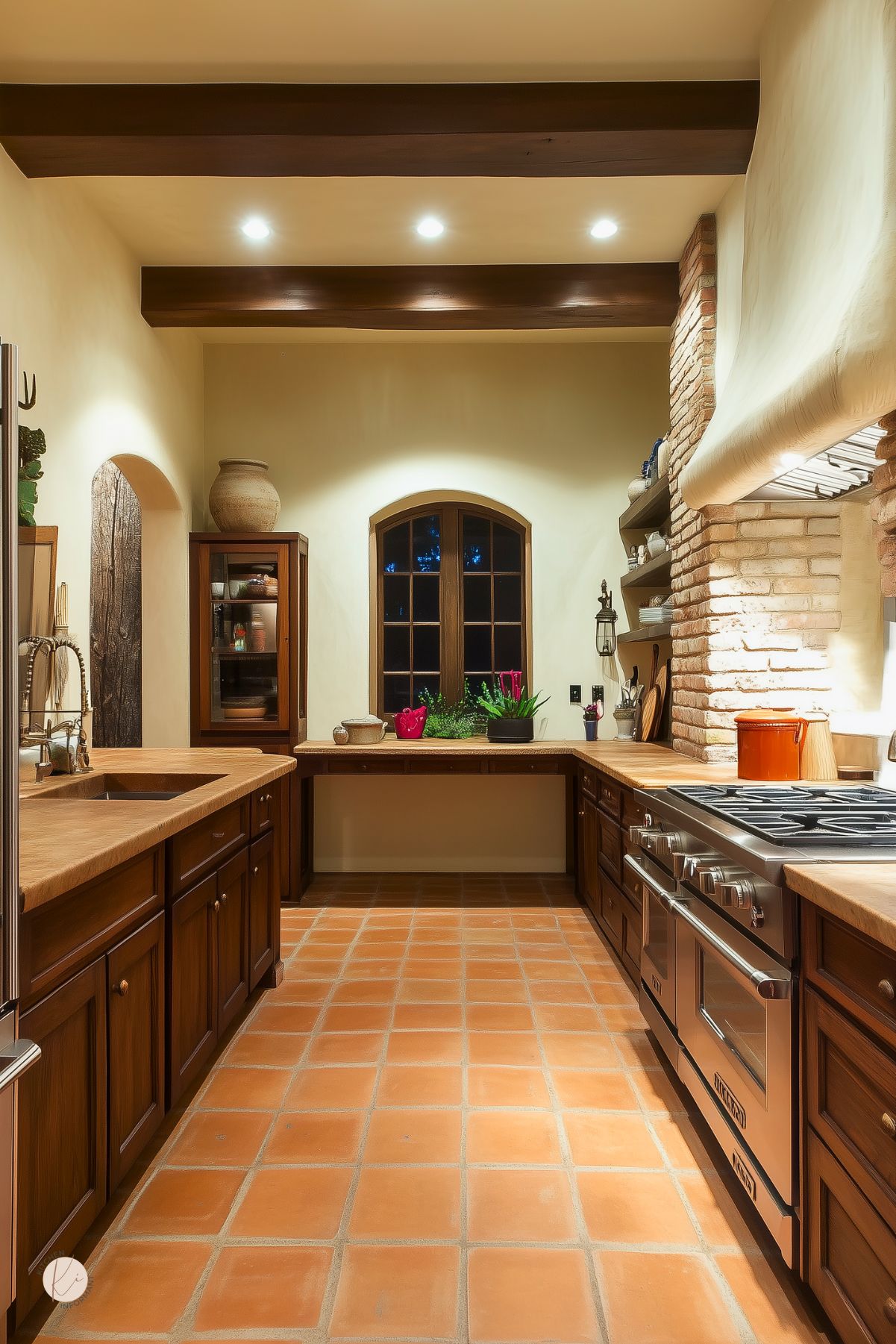
You May Also Like:
